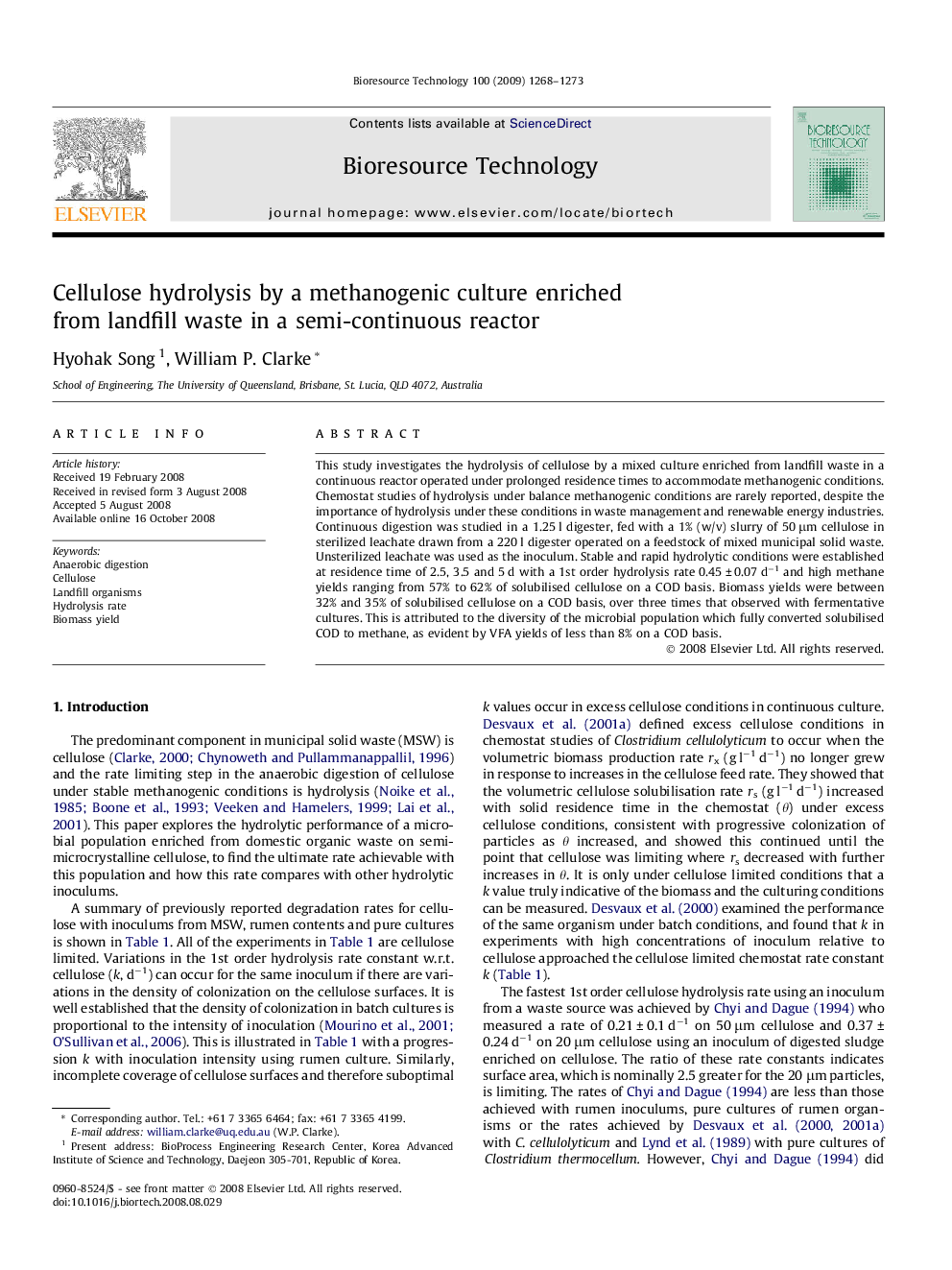| Article ID | Journal | Published Year | Pages | File Type |
|---|---|---|---|---|
| 686120 | Bioresource Technology | 2009 | 6 Pages |
This study investigates the hydrolysis of cellulose by a mixed culture enriched from landfill waste in a continuous reactor operated under prolonged residence times to accommodate methanogenic conditions. Chemostat studies of hydrolysis under balance methanogenic conditions are rarely reported, despite the importance of hydrolysis under these conditions in waste management and renewable energy industries. Continuous digestion was studied in a 1.25 l digester, fed with a 1% (w/v) slurry of 50 μm cellulose in sterilized leachate drawn from a 220 l digester operated on a feedstock of mixed municipal solid waste. Unsterilized leachate was used as the inoculum. Stable and rapid hydrolytic conditions were established at residence time of 2.5, 3.5 and 5 d with a 1st order hydrolysis rate 0.45 ± 0.07 d−1 and high methane yields ranging from 57% to 62% of solubilised cellulose on a COD basis. Biomass yields were between 32% and 35% of solubilised cellulose on a COD basis, over three times that observed with fermentative cultures. This is attributed to the diversity of the microbial population which fully converted solubilised COD to methane, as evident by VFA yields of less than 8% on a COD basis.
